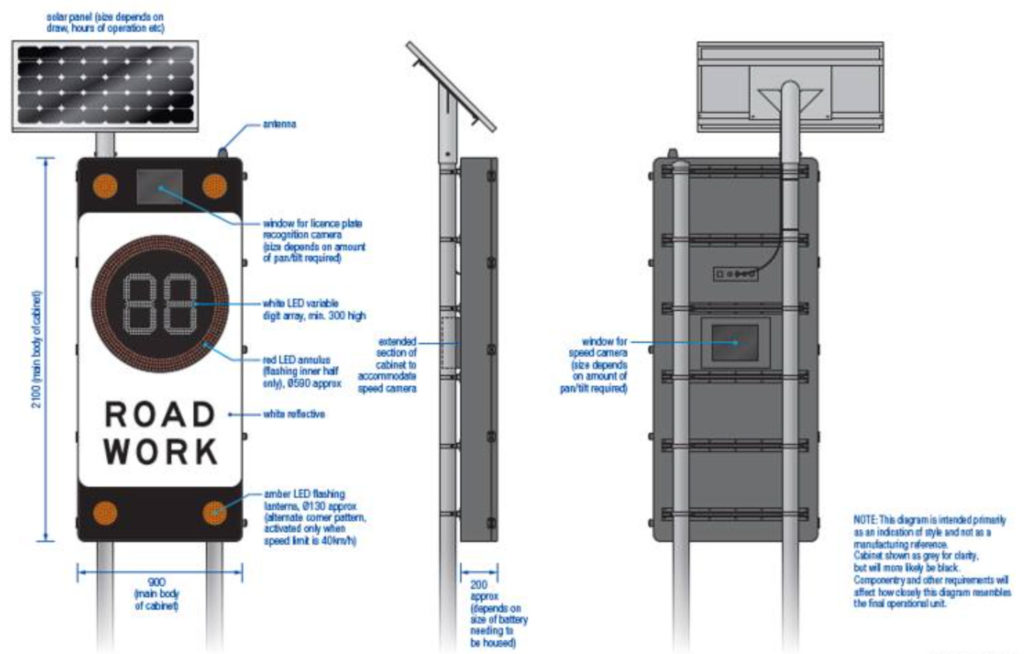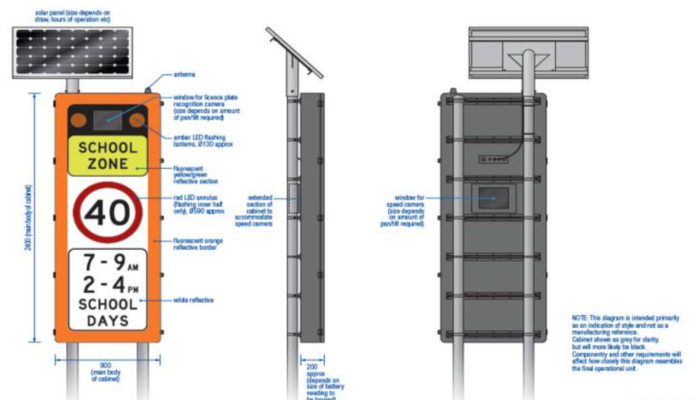New speed camera technology will target speeding drivers in school zones and roadworks across Queensland in a world-first road safety initiative.
Transport and Main Roads Minister, Mark Bailey said the Government will roll out the Hi-Tech cameras on the back of shocking figures from Queensland’s school zones and roadworks areas.
“I don’t want to see another roadworker killed, or someone’s child badly injured on their way to school because of the reckless actions of a speeding driver,” Mr Bailey said.
“In just over 12 months to February this year, 1,484 drivers were clocked doing more than 20km/h over the speed limit in school zones across Queensland, this is unacceptable.
“We’ve put flashing signs at more than 1,100 school zones since 2012, worked to increase signage around roadworks, and run strong advertising campaigns, but sadly it appears the message isn’t getting through to some road users.
“Speeding remains one of the leading causes of crashes in this state and it is vital we do what we can to protect our vulnerable students and roadworkers.”
Mr Bailey said the pilot program used high-tech cameras small enough to be mounted on solar-powered flashing road and street signs.
He said the cameras will work into Transport and Main Roads’ existing Flashing School Zone Signs program, making it safer for students and their families to walk to and from school.
“The cameras will also improve safety for our school crossing supervisors,” he said.
“The technology can record when a crossing supervisor enters the roadway, capturing any near misses or high-risk incidents.”

RACQ spokesperson, Renee Smith urged drivers to obey the speed signage in roadworks and school zones.
“Children can be unpredictable and often don’t have the same spatial awareness as adults, so while they’re still learning to be safe around our roads it’s up to motorists to slow down and be alert to protect them,” Ms Smith said.
“Roadworkers have families and friends to come home to and going too fast though their workplaces puts their lives at risk.
“While delays at roadworks can be frustrating, ultimately, these works are underway to make our roads safer. Even if there are no workers visible, lower speed limits help motorists more safely navigate the changed road conditions.
“If you’re caught by these cameras during the trial period you’ll be fined, but if you crash, a fine is the least of your worries.
“Imagine the horror of hurting a child, teacher or roadworker because you were either not paying attention to the speed limit or couldn’t be bothered to slow down.”
Mr Bailey said TMR would manage the pilot program in partnership with the Queensland Police Service.
“As part of the trial, cameras will be rotated across 24 prioritised high-risk school zones,” he said.
“Cameras will also be available for road work sites, including Bruce Highway Upgrade Program roadworks.
“The safety of our roadworkers is paramount – they are there to do a job and must be protected. This trial will assist with that.
“Motorists must slow down around roadworks, obey the speed limit and keep an eye out for workers.”
Mr Bailey said roadworkers and school communities continued to report high numbers of motorists exceeding signed speed limits.
“Almost half of all serious speeding crashes occur at less than 10 km/h above the speed limit,” Mr Bailey said.
“Speeding 5km/h above the speed limit in urban areas – or 10km/h above in rural areas – doubles the risk for a driver having a crash resulting in serious or fatal injury.
“Queensland Road Safety Week, which is held 16-20 August, gives us an opportunity to take stock of the current situation on our roads. Last year was one of the worst for fatalities, with 277 lives lost and a further 6952 seriously injured.
“Of those fatalities, 69 people died as a result of road crashes involving speeding motorists – that’s almost 25 per cent of all road deaths.
“Unfortunately, this year is looking even worse, with 176 (as at 19 August) lives lost. Please slow down, drive to conditions and know the fatal five risky driving behaviours.
“Even the highest quality roads need responsible drivers.
“When you are behind the wheel, you have the power to save lives or kill and injure people. It’s that basic. If you are the cause, you will carry the burden of your actions for the rest of your life.”


